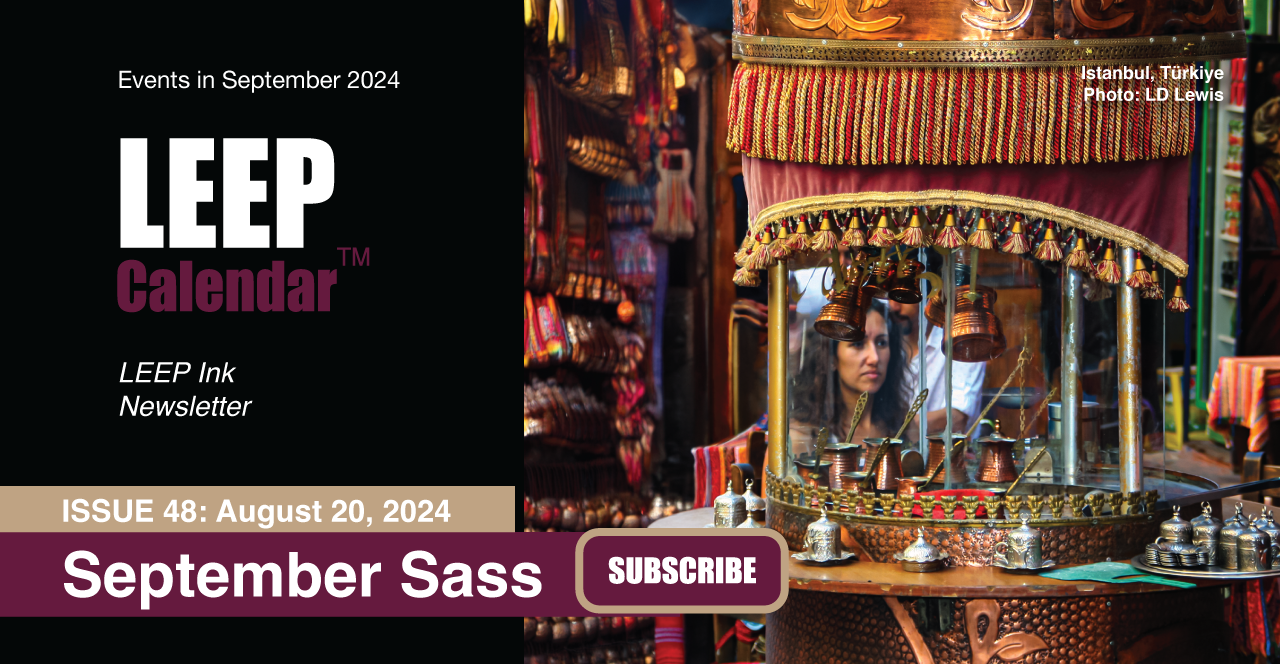 AD
AD
Country
- Africa
- Alcohol, Tobacco & Drugs
- Animals, Fish, Insects & Birds
- Anniversaries
- Australia
- Books
- Brazil & S.America
- Buddhism
Category
- Afghanistan, AF
- Aland Island, AX
- Albania, AL
- Algeria, DZ
- American, Samoa, AS
- Andarra, AD
- Angola, AO
- Anguilla, Al
Event Type
- Daily
- Weekly
- Annual
- Recurring
Duration
- All
- 1 Day
- 2 Day
- 3 Day
- 4 Day
- 5 Day
- 6 Day
Event Type
- Daily
- weekly
- Annual
- Recurring
Event Type
- Daily
- weekly
- Annual
- Recurring
Today is: October 23
Liberation Day (LY)(2011)
Mole Day, Ntl.
Peace Treaty Day, (KH)(1991)
Republic Day, (HU)(1956/1989)
Shemini Atzeret (J)
Snow Leopard Day, World (2013)
Talk Show, (Television) Host Day (1925)
iPod Day, Intl. (2001)
ACE Week
Adoption Week, Ntl. (UK)
Black in Natural History Museums Week
Bullying Bystanders Unite Week
Businesswomen's Week, Ntl.
Character Counts Week, Ntl.
Chemistry Week, Ntl.
Digital Parenting Week (UK)
Disarmament Week, World
Estate Planning Awareness Week, Ntl.
Food and Drug Interaction Education Week
Forest Products Week, Ntl.
Freedom of Speech Week
Friends of Libraries Week, Ntl.
HIP Week (CA)
Health Education Week, Ntl.
Healthcare Quality Week, Intl.
Heritage Week, Ntl., (JM)
IMF World Bank Summit (US-DC)
Lead Poisoning Prevention Week of Action, Intl.
Male Breast Cancer Awareness Week, Ntl.
Mammal Week, Ntl. (UK)
Massage Therapy Week, Ntl.
Media and Information Literacy Week, Global
Medical Assistants Week
Nuclear Science Week, Ntl.
Origami Days, World (1898)
Pastoral Care Week
Prescription Errors Education Week
Red Bull Tuk Tuk Tournament (LK)
Red Ribbon Week (DEA)
Respiratory Care Week, Ntl.
Retirement Security Week, Ntl.
Rodent Awareness Week, Ntl.
School Bus Safety Week, Ntl.
Schools Week, America's Safe
Sock it to Suicide Week (AU)
Storytelling Festival, Scottish Intl. (UK)
Stuttering Awareness Week, Intl.
Teen Driver Safety Week, Ntl.
Temperature Check Week, Ntl.
Towns Week, Ntl. (PH)
Veterinary Technician Week, Ntl.
Wild About Gardens Week (UK)
Wolf Awareness Week, Intl
World Series MLB
YWCA Week Without Violence
ADHD Awareness Month
Adopt-a-Dog Month, (AHA)
Adopt-a-Shelter Dog Month
Advertising, Co-op Advertising Awareness Month
Animal Safety and Protection Month, Ntl.
Antidepressant Death Awareness Month
Anxiety and Depression Awareness Month (AU)
Apple Month, Ntl.
Applejack Month
AquaTober
Architecture Month, Archtober
Arts and Humanities Month, Ntl.
Autism Awareness Month (CA)
Bake and Decorate Month, Ntl.
Bat Appreciation Month
Battery Safety Month (Auto)
Bi-national Health Week (US/CA/MX-varies locally)
Big Draw, The
Bilingual Child Month, Celebrating the
Black History Month (UK)
Black Speculative Fiction Month
Blind Month, National Meet the
Blindness Awareness Month
Book Month, Ntl.
Breast Cancer Awareness Month, Ntl.
Bullying Month, Stop, Ntl.
Bullying Prevention Month, Ntl.
Caffeine Addiction Recovery Month
Car Care Month, Ntl. Fall
Caramel Month, Ntl.
Celiac Awareness Month (US)
Cheese Month, American
Chili Month, Ntl.
Chiropractic Health Month, Ntl.
Church Library Month
Church Safety and Security Month, Ntl.
City, Urban October
Class Reunion Month
Clergy Appreciation Month
Co-op Awareness Month
Collegiate Alcohol Awareness Month, Ntl.
Company Culture Month, Global
Computer Learning Month
Contact Lens Safety Month
Cookie Month
Country Ham Month
Country Music Month
Crime Prevention Month, Ntl.
Critical Illness Awareness Month
Cybersecurity Month, Ntl.
Danger Run (US-KY, IN, IL)
Danger Run (US-KY, IN, IL)
Dental Hygiene Month, Ntl.
Depression Education and Awareness Month
Dessert Month, Ntl.
Disability Employment Awareness Month
Diversity Awareness Month, Global
Domestic Violence Awareness Month
Down Syndrome Month, Ntl.
Dyslexia Awareness Month
Eat Better—Eat Together Month
Eczema Awareness Month
Emotional Intelligence Awareness Month
Energy Action Month, Ntl.
Ergonomics Month, Ntl.
Eye Injury Prevention Month
Fair Trade Month
Family History Month
Festival of Penha (BR-RJ)
Filipino American History Month (1587)
Financial Planning Month
Freethought, Month of, Ntl.
Gain the Inside Advantage Month, Ntl.
Gay and Lesbian History Month (1979)
German-American Heritage Month (1683)
Girls Night In (AU)
Go Sober Month (UK)
Golf Month, Australia
Great Cycle Challenge (AU)
Halloween Safety Month
Head Start Awareness Month
Health Literacy Month
Healthy Lung Month
Healthy Workplace Month (CA)
Hearing, Audiology Awareness Month, Ntl.
Hemophilia, Bleeding Disorders Month, Ntl. (AU)
Hog-out Month (US-TX)
Home Eye Safety Month
Indigenous Peoples Month, Ntl. (PH)
Islamic History Month (CA)
Italian-American Heritage Month (1492)
Kartika (H)
Katik (S)
Kitchen and Bath Month, Ntl.
Learning Disabilities Month, Ntl. (CA/US)
Learning and Development Month, Ntl.
Liver Awareness Month, Ntl.
Long Term Care Planning Month
Lupus Awareness Month (UK)
Medical Librarians Month, Ntl.
Medicine Abuse Awareness, Ntl.
Menopause Month, World
Museums and Galleries Month (PH)
Muslim American Heritage Month (US)
National Sausage Month
Non-GMO Month, Ntl.
Organize Your Medical Information Month
Orthodontic Health Month, Ntl.
Pasta Month, Ntl.
Pedestrian Safety Month
Pescatarian Month, Ntl.
Pet Wellness Awareness Month, Ntl.
Pharmacist Month, American
Photographer Appreciation Month
Physical Therapy Month, Ntl.
Pickled Peppers Month
Pink Ribbon Breakfast (AU)
Pit Bull Awareness Month, Ntl.
Pituitary Awareness Month (UK)
Pizza Month, Ntl. (1984)
Polio Awareness Month, (CA/AU)
Polish-American Heritage Month
Popcorn Poppin' Month, Ntl.
Positive Attitude Month
Prenatal-onset GBS Disease Recognition Month
Pretzel Month, Ntl.
Principal's Month, Ntl.
Protect Your Hearing Month, Ntl.
Rabi al-Thani (M)
Reading Group Month, Ntl. (1917)
Rett Syndrome Awareness Month
Riyadh Season 2024 (SA)
Roller Skating Month, Ntl.
STEM Mentoring Month
Sarcastic Awareness Month
School Libraries Month, Intl.
Seafood Month
Senior's Month (AU-QLD)
Sensory Awareness Month, Ntl.
Shoctober - Defibrillator National Awareness Month (AU)
Spina Bifida Awareness Month, Ntl.
Spinach Lovers Month
Spinal Health Month, Ntl.
Squirrel Awareness and Appreciation Month
Stamp Collecting Month, Ntl
Stop America's Violence Everywhere (SAVE) Month
Substance Abuse Preservation Month, Ntl.
Sudden Infant Death Syndrome (SIDS) Awareness Month
Sunday School Teacher Appreciation Month
Teentober
Tishrei (J)
Turner Prize Exhibition (UK)
U.S.-Mexico Border Health Month
Ultrasound Awareness Month
Unblocktober (UK)
Unblocktober (UK)
Vegetarian Month
Walk To School Month, Intl.
Window Covering Safety Month, Ntl.
Winter Weather Preparedness Weeks (Varies by Location)
Wishbones for Pets (US/CA)
Women's History Month (CA)
Women's Small Business Month
Work and Family Month, Ntl.
Workplace Politics Awareness Month
Youth Justice Action Month, Ntl.
LEEP Calendar
Scroll to explore events active on this date.
Additional Events on LEEP
LEEP INK FEATURES

August is Appropos
A toddler playing in the fountain at a park in Santa Fe, New Mexico—Photo LD Lewis. In August, we live through the Dog Days of Summer. It's hot and often humid, and those ...

September is Sassy
Can you hear that sigh of relief from parents worldwide? Yes! September marks the return of students to school, a global phenomenon. Preparations for the ACT and SATs begin earnestly for ...

OOH LA LA, October
October is the busiest month for events, with 5% more happening than in May, the second most eventful month. Sailing enthusiasts will be glued to the finals of this year's Am...
About World Day of Romani Language
India , Family & Friends
Civil Rights
Ends: Nov 05, 2025
DESCRIPTION:
World Day of Romani Language acknowledges the Romani language, an integral part of the cultural heritage of the Romani people. It raises awareness about the Romani people, promoting the preservation and use of this Indian-based language and the unique culture of the people.
WHO ARE THE ROMANI?
The Romani people, or Roma (or Gypsies—due to a misalignment as coming from Egypt during the wane of the Roman Empire), have a complex and rich history spanning over a millennium.
The Roma are an itinerate people from the northern regions of the Indian subcontinent who began migrating to Europe and other parts of the world around the 11th century. Linguistic and genetic evidence points to their origin in India, particularly in today's Rajasthan, Punjab, and Haryana regions.
As a distinct cultural group, they faced numerous challenges, often marked by discrimination and hardship. As they migrated through the Byzantine Empire into Europe, they became known for their nomadic lifestyle. This trait would become both a cultural hallmark and a source of stereotype and misunderstanding.
In Europe, the Roma initially found themselves welcomed, but this reception quickly soured due to their darker complexion and mystical traditions, causing them to be marginalized and persecuted. This mistreatment reached a devastating peak during World War II with the Porajmos or the Romani Holocaust; twenty-five percent of their global population, 550,000 people, and an equivalent percentage of the Jewish population persecuted at the same time were exterminated by the Nazis. Today, the Roma are Europe's most significant ethnic minority, with communities also found in the Americas and some parts of the Middle East and North Africa.
Despite these adversities, the Roma have preserved a rich cultural heritage, including a distinct language and music, art, and craftsmanship traditions. With its various dialects, the Romani language remains a central element of their cultural identity.
THE ROMANI LANGUAGE
UNESCO World Day of Romani Language aims to counteract the marginalization and discrimination of the Romani community and their language. The Romani language began as a subset of Sanskrit but reflects influences of Persian, Turkish, Eastern European, and localized tribal languages within its words and structure. However, the language is not monolithic. It includes multiple dialects and is an essential part of the identity and cultural expression of the Romani people. The language has evolved over centuries, reflecting a history of over 1400 years of migrations from India through Persia, Turkey, and finally, Europe. It is a testament to the resilience of the Romani community.
The awareness day includes activities and events organized globally, such as linguistic conferences, cultural festivals, educational workshops, and exhibitions designed to educate the public about the history and significance of the Romani language. A primary goal of this day is to promote the inclusion of the Romani language in educational systems, particularly in regions with significant Romani populations. Inclusion preserves the language and ensures Romani children's educational rights.
The day also highlights language preservation challenges for many unique cultural communities, including the need for more official recognition and support in many countries. Today, advocacy often focuses on urging governments and international organizations to take concrete steps to safeguard the Romani language and culture.
UNESCO World Day of Romani Language is a significant observance that not only celebrates the linguistic heritage of the Romani people but also advocates for the rights and recognition of one of Europe's largest minority groups. It underscores the importance of linguistic diversity and the need to preserve and promote minority languages as part of the world's rich cultural tapestry.
VIDEOS
SUPPORTING DOCUMENTS
Currently, this event does not have supporting documents.
ADDITIONAL IMAGES
Currently, this event does not have supporting images.
Where would you like to go now?
 AD
AD
By using this site. You are agreeing to use of cookies. Learn more in our Privacy Policy
/footer-logo.svg)
LEGAL: Excerpts and links may be used, provided that full and clear attribution is given to Jubilee LLC and LEEPCalendar.com, with appropriate and specific direction to the original content (Page URL). Additional documents, embedded videos and additional image rights retained by their creators and are provided to increase understanding of the event or topic.
Jubilee LLC reserves the right to accept or reject inclusion of events in this calendar. The appearance of an event in LEEP Calendar does not imply endorsement of the event, nor the organization championing the event by Jubilee LLC, its stakeholders, customers or subsidiaries. All dates, contact information, URLs, addresses, and information relating to any event, promotion or holiday are subject to change without notice and should be treated as estimated. Jubilee LLC, our stakeholders, customers and subsidiaries cannot warrant accuracy. Users of this application are solely responsible for verifying actual event date with organizers and additional sources prior to committing resources, financial, human or otherwise.


